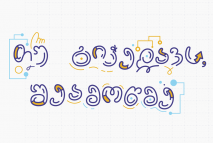About Communications Commission
About the Communications Commission
The Communications Commission is the architect of the telecommunications sector. It is an independent body that protects consumer rights, regulates the fields of broadcasting and electronic communications, ensures competition on these markets, and implements innovative technologies to ensure more effective, comfortable and timely communication for every citizen. The Commission has been operating since 1 July 2000.
In 2017, the Communications Commission was also given the legal responsibility to develop and promote media literacy in Georgia. Although technological progress has brought numerous benefits, it also created new challenges. In today’s world, information spreads at the speed of light. An informed citizen is the only effective weapon in the fight against fake news.
The Commission’s activities meet the core standards of the 21st century, without which it would be impossible to imagine life, integration and progress in the age of communications and technologies.
In the era of technology, when innovative services are implemented every day, it is important for the country to effectively respond to these challenges, and to develop and introduce new technologies. It is also crucial for the Commission not only to provide the public with unrestricted access to hi-tech services, but also to ensure the presence of pluralistic and independent media in the country, as only informed citizens can make the best possible choices. Therefore, the role of the Communications Commission in the country’s development is becoming increasingly important each day.
The Communications Commission is composed of five members who are elected for a six-year term. The Commission and the commissioners only follow the law when exercising their authority.
The Commission is not subordinate to any state body, and is not funded from the state budget. The Commission’s source of income are the regulatory fees paid by the authorised and licensed persons from the electronic communications and broadcasting sectors. The fee is equal to 0.75% of the annual income for authorised persons in the electronic communications sector, and 0.5% of the annual income for broadcasters.
The Objectives and Powers of the Commission:
The main objectives and tasks of the Commission include the following:
- Protect consumer interests;
- Provide a broad range of services and ensure their accessibility for the consumers;
- Establish a transparent regulatory environment and promote competition;
- Develop and promote media literacy;
- Prevent monopolistic practices in the electronic communications and broadcasting sectors;
- Support the implementation of modern technologies;
- Ensure effective allocation of frequencies and numbers;
- Ensure proper and stable functioning of the telecommunications market by resolving any disputes between authorised and licensed persons, as well as between industry players and consumers;
- Establishing and allocating radio frequencies, certification of broadcasting means, standardisation and provision of metrological services;
- Regulate technical, legal and economic issues regarding two-way connection of electronic communication network operators in order to protect consumer interests and ensure access to the services of all operators.
Normative Base:
The Communications Commission was formed on the basis of the Law on Communications and Postal Services, which was approved by the Parliament of Georgia on 23 July 1999. The creation of the Communications Commission established a completely new organisational, legal and economic basis for the activities in the communications and postal sectors. The aforementioned law was superseded by the Law of Georgia on Electronic Communications in 2005. The current legislation clearly separates the functions of the government as the policymaker and the Commission as the regulatory authority.
According to the statutes, the Commission is a legal entity of public law and a permanently independent state body. The Commission submits its annual activity report to the President of Georgia, the Government of Georgia and the Parliament of Georgia.









